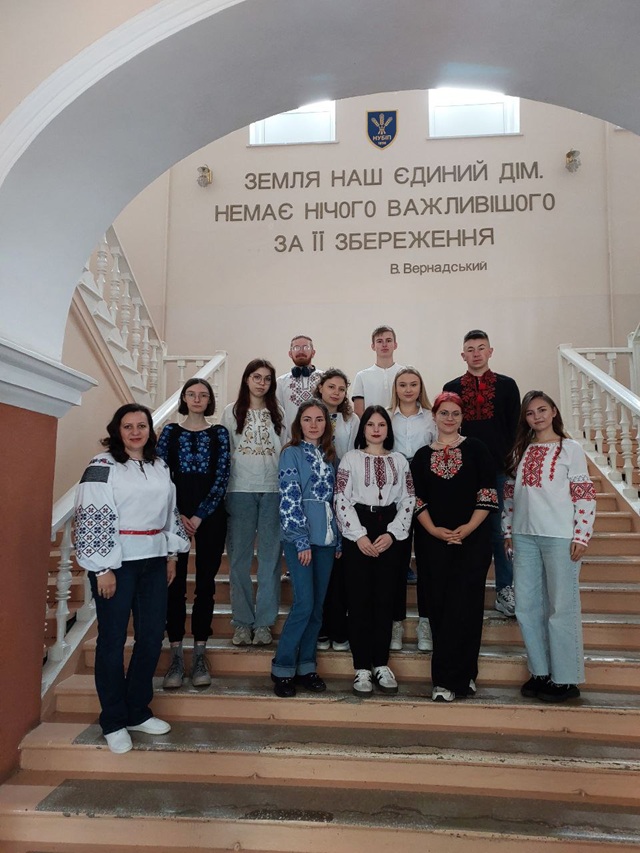Вишиванка єднає!
Дякуємо тим, хто носить бронежилет поверх вишиванки. Завдяки Вам носимо вишиванку сьогодні і ми.

Започаткований у 2006 році, День вишиванки в Україні – це не просто свято, а важлива подія, спрямована на збереження глибоких традицій українського національного вбрання.
Вишиванка, яка втілює красу, міць духу, прагнення до щасливої долі та зв'язок з минулими поколіннями, є справжньою національною святинею. Це більше, ніж одяг.
Дивовижно, але попри свою давню історію, вишита сорочка не тільки не втрачає популярності а й органічно вписується в сучасний стиль та залишається неймовірно модною! Жоден інший національний костюм не може зрівнятися з актуальністю української вишиванки сьогодні.
Долучилися до святкування Дня вишиванки і ми…
доцент кафедри рослинництва
Олеся Скриник
